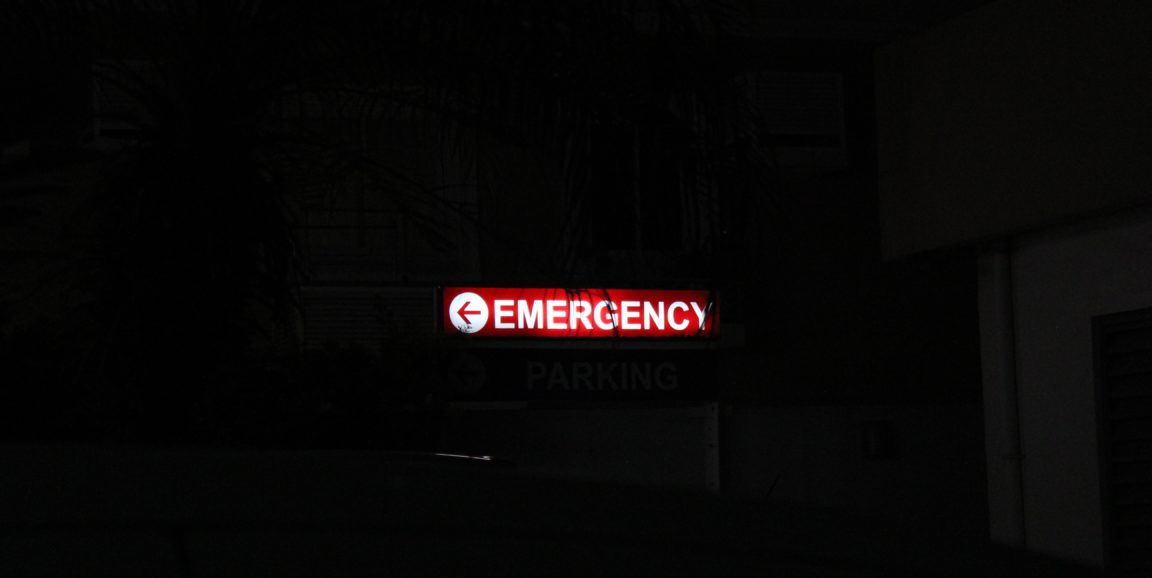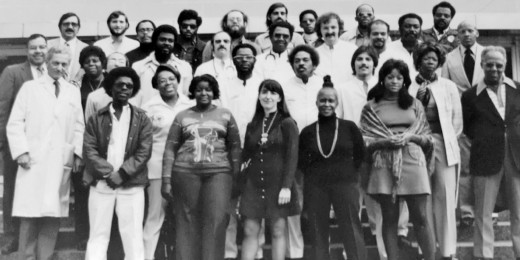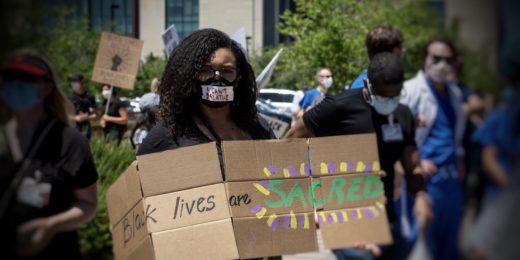With three other emergency medicine physicians, Al'ai Alvarez, MD, penned a column published in USA Today, entitled ER Doctors: We're no strangers to violence but we try to de-escalate without anyone dying.
The op-ed, which was co-authored by Stanford physician Italo Brown, MD, and two Harvard physicians, opened with a jarring reality: "As emergency medicine physicians of color, we are yelled at and called profane names. We have been spat on, pushed and kicked. We have routinely experienced psychological and physical trauma. But we choose nonviolent de-escalation strategies -- not just because they work but because they are humane."
Seeing the violence by police in the death of George Floyd, the four docs felt compelled to write about de-escalation strategies they use to defuse tense situations.
I spoke to Alvarez for a 1:2:1 podcast. This Q&A is condensed and edited from that conversation.
How did you decide to write the USA Today column?
When the four of us were talking about how we could respond to George Floyd's death, as emergency room physicians of color, we wanted to focus our thoughts on different non-violent strategies we've learned to de-escalate intense hostile situations.
We wanted to share with the general public that working in an emergency department can be dangerous -- we experience violence, and it's fairly common in our practice. We are exposed to threats; and if we don't have control of our own emotions, we could harm patients. Yet, none of us harm our patients with any of our tactics.
We also wanted to reach people who are trying to navigate where they stand with law enforcement officers. We truly believe that law enforcement officers are very important in our community; but at the same time, we wanted to make sure that they're aware of nonviolent ways of de-escalating.
Why does it sometimes get intense in emergency departments?
In emergency medicine, because of the nature of our work -- we're the front lines -- people come to us in various stages of agitation. Some of them are very subdued, or some of them are very, very agitated and hyper-activated.
I trained in the Bronx, and sometimes I saw people who became angry, waiting so long in the waiting room; by the time we see you, you're going to be very upset. How you manage that anger -- how that manifests to us -- is very important in how we respond to it, as well.
In my earlier practice, earlier training, I'd see people responding to anger with anger; and in my experience, that actually makes things worse. Only having moved here to California, and really focusing on different nonviolent strategies, have I learned there are many other ways of de-escalation.
I also think emergency medicine has become better with strategies for managing agitated patients in the 10 years since I graduated.
Why do you think the instinct is to respond with anger? How can people find other ways to respond?
I think it's human nature whenever our safety is being threatened. You've seen what they say to do if you're attacked by a bear: Stand your ground, and create this sense that you're bigger and louder than the bear, to scare them.
I don't think human beings really need to respond to each other that way.
For me, I learned this with several programs here at Stanford. There's the Center for Compassion and Altruism Research and Education (CCARE), their Applied Compassion Training, which also works with increasing diversity and inclusion in medicine. It shows you how to personalize your interaction with people in order to overcome your own biases.
I've learned that I can be angry, but I don't need to necessarily act on that. I have ways to de-escalate myself in order to de-escalate the other person.
What is the extra burden in being an emergency department physician of color?
People tend to not take us as seriously. It's not uncommon to be called a nurse or a technician, even though many of us are wearing our white coats, introducing ourselves, "I'm Dr Alvarez." Even when we are acknowledged as a physician, they think we're either a medical student or the resident. They're always looking for the supervisor, even though oftentimes we are the supervisor.
Why are you passionate about medicine? Why are you a physician?
At the end of the day, my patients are human beings. Just like me, they're trying to connect and sometimes are terrified. What I can bring to emergency medicine is the mindset that I am not there to fix everything, but I can be there to care for them.
To quote the physician-comedian Patch Adams, who I had the fortune and opportunity to do clowning with: "To treat a disease, you win or you lose. To treat a patient, I guarantee you, no matter what the outcome, you'll win." I remind myself that.
Photo by Jake Espedido






